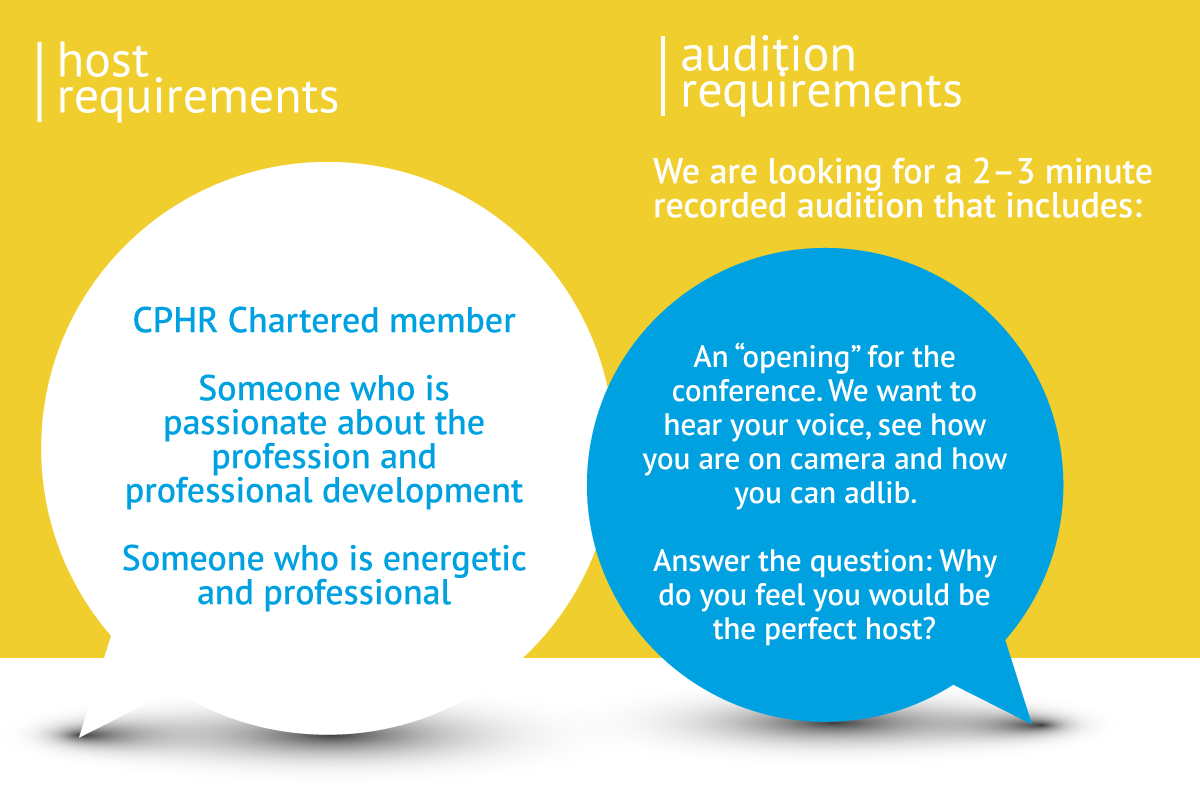
Are you our next conference host?

We are looking for our next conference host, and it could be you!
This year’s Annual Conference: Engage 22 will be a hybrid event, taking place in-person and virtual, creating one connected experience. Join HR practitioners from across the province as we focus on current challenges facing the profession amidst the new normal. How HR strategy plays a crucial role in keeping employees informed, engaged and ready for the future of work .
The conference will span over two days with the focus on day two offering both in-person and virtual attendance options. Our in-person experience will be hosted at Hotel Arts in Calgary.
September 26 will feature pre-conference learning, poolside welcome reception and the presentation of the CPHR Alberta Excellence Awards in the evening. The successful member will be hosting both conference days as well as the awards ceremony.
Host Expectations
This role will include work leading up to both the Excellence Awards and Conference Day, including but not limited to:
Pre-event Work
The host must be available to respond to questions from CPHR Alberta staff and/or to receive updates from CPHR Alberta staff prior to the conference. The host may be requested to create video content for social media directed by the Conference Manager and/or Marketing Manager. The host is expected to familiarize themselves with the online conference platform.
On-site Rehearsals (September 25 and 26, 2022) TBC
Available to run through Conference and Awards activities and schedule, testing of online platform and other technology and confirmation of host’s role and expectations during the events. Rehearsals will occur at Hotel Arts in Calgary.
On September 26, 2022, at the CPHR Alberta Excellence Awards
- Welcoming attendees & nominees to the awards ceremony
- Introduce or interact with sponsors
- Provide energy and flow
- Close the CPHR Excellence Awards
On September 27, 2022 at Engage 22
- Welcoming attendees to the conference and provide an overview of the day and online platform for virtual attendees
- Introduce the opening keynote and lead a live Q&A session with the keynote at the end of his/her presentation
- Guide attendees into sessions throughout the day
- Introduce interactive presenters during breaks throughout the day
- Provide energy and flow throughout the day
- Close the conference and announce prize winners
Key Dates and Timelines
Audition Submissions: May 30 – July 13, 2022
Call back and host interviews: July 19 – 21, 2022
Rehearsal Dates: September 25-26, 2022 (to be confirmed)
CPHR Alberta Excellence Awards: September 26, 2022
Annual Conference: Engage 22: September 27, 2022
We are looking for someone who can engage with our audience and is quick on their toes. CPHR Alberta will arrange accommodations and compensate for mileage, food and beverage if the host is from a city outside of Calgary. Compensation for hosting will be discussed with the individual selected.

How to Submit Your Application - It's simple!
- Record your audition and save it as an MP4
- Send your audition via email to Jessica Greenway ( jgreenway@cphrab.ca ) by July 13, 2022
- Have experience hosting or emceeing an event, podcast other media? If so, please provide a recording and or references. (Please note this is NOT a requirement)
The views and opinions expressed in this blog post belong solely to the original author(s) and do not necessarily represent the views and opinions of CPHR Alberta.





